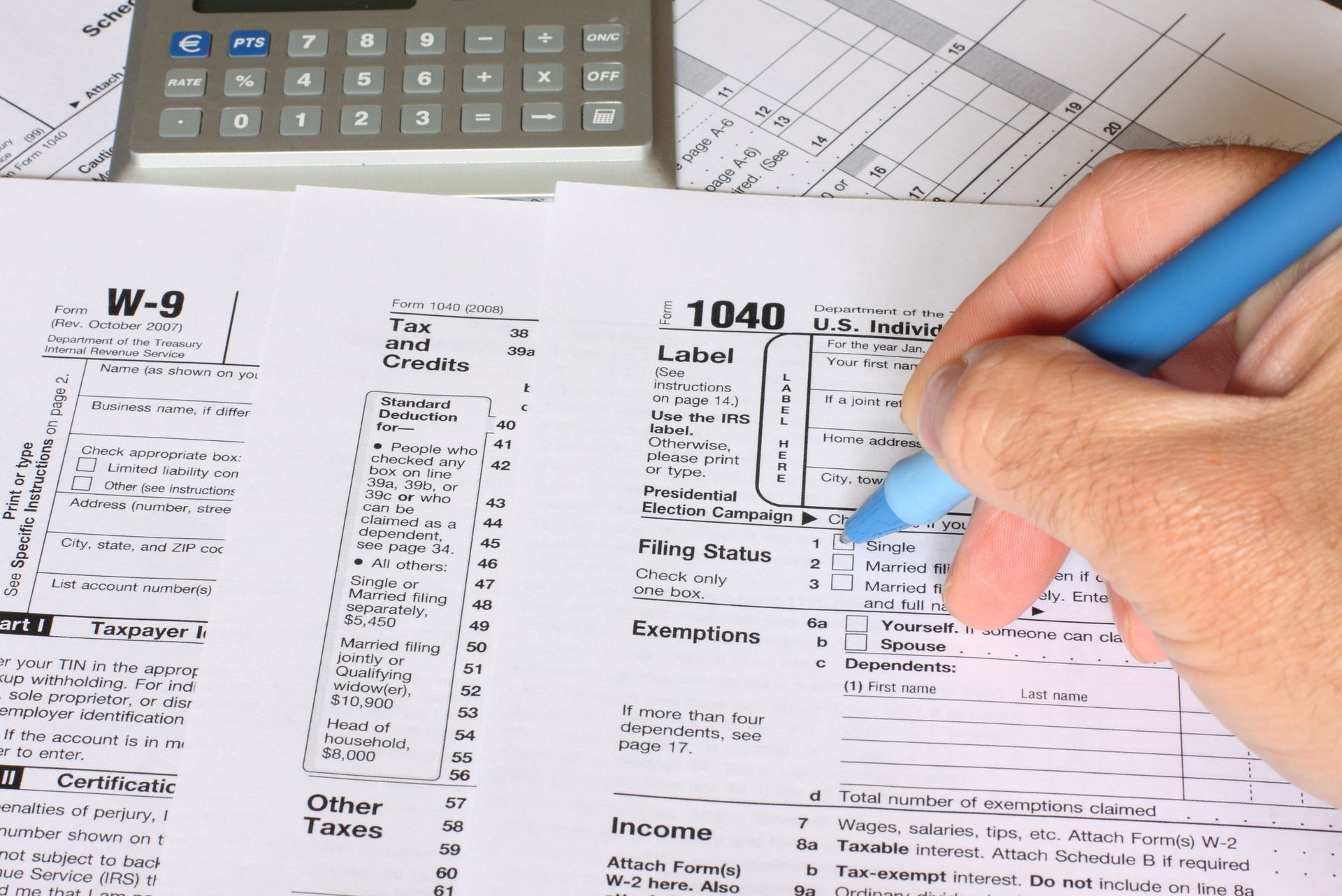4 Income Tax Forms for a Washington Trust or Estate

If you are considering forming a trust or doing estate planning, here's what you need to know about the tax forms Washington residents may encounter when dealing with a trust or estate.
1. Form 1040
IRS Form 1040 is the standard income tax form that most Americans file annually. It comes into play with both estates and trusts in two different ways. First, the income of a revocable trust — where the grantor who set up the trust can change the terms of the trust at will — is taxed on the grantor's Form 1040. Because the trust owner has financial control, the trust is not considered a separate entity.
How does Form 1040 involve estates? After a person passes away, income and assets are divided between what was effectively owned by the deceased and what is part of the estate they left behind. Income deemed as received (by other parties) in respect of a decedent is included on the final Form 1040 of the deceased individual. The rest is dealt with on estate tax forms. This determination is usually made by a tax professional.
2. Form 706
The IRS has a specific form for estates of deceased taxpayers to report income and pay any tax due. Called Form 706 (United States Estate and Generation-Skipping Transfer Tax Return), it is set up similarly to Form 1040. The estate executor and their tax preparer will add up the value of the estate, subtract allowable tax deductions, and report any other applicable taxes paid to come up with any tax due.
Although all estates are subject to taxation, they are granted an exclusion before Form 706 is required. As of 2021, this exclusion applies to the first $11,700,000 of assets in the estate.
3. Form 1041
Irrevocable trusts are those which are no longer considered part of the grantor's personal assets. Although the grantor may still be the trustee, the terms of the trust cannot be revoked or altered by the grantor. Rights of ownership of the assets is given up when the trust is formed.
This lack of control means that the trust is its own entity and pays taxes directly rather than through the grantor. Form 1041 (U.S. Income Tax Return for Estates and Trusts) is how it does this. This form is due when there is more than a minimum of income from trust assets and it is set up similarly to Form 1040.
4. Washington State Estate and Transfer Tax Form
Most states have their own form for reporting and paying any state tax due from an estate. Washington-based estates use the Washington State Estate and Transfer Tax Form. Tax rates range from 10% to 20% after deductions and exclusions.
As is true of the federal estate tax forms, not all Washington estates must file a state tax return. As of 2021, only estates that have more than $2.193 million in assets need to file. However, this threshold is lower than the federal one, so the executor may be required to file a state form whether or not they must file a federal Form 1041.
Where to Start
For most taxpayers and executors, these tax forms are unfamiliar and can be confusing. They generally require the assistance of an experienced tax preparer or accountant versed in the tax rules in the state of residence.
Bliss & Skeen can help. With more than 40 years of experience in all areas of income tax preparation, estate planning, and trust administration, we can guide you through your tax obligations no matter what they may be. Get in touch with us today to make an appointment.















